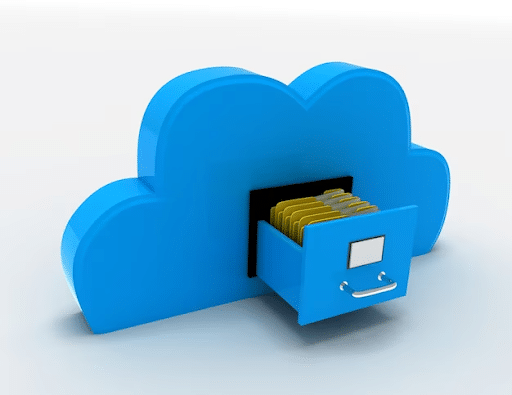Curious about how the cloud can transform your data management? Look no further!
In this article, we demystify cloud data storage and show you the many ways it revolutionizes data management.
Discover the benefits of cloud storage, from enhanced data security to scalability and flexibility.
Discover how cloud data management can save you costs while optimizing data access and collaboration.
Get ready to unlock the power of the cloud for your data management needs!
Benefits of cloud data storage
You’ll love the benefits of cloud data storage, such as greater scalability and accessibility. With cloud data storage, you can easily scale up or down your storage needs based on your requirements. You no longer have to worry about running out of space or having to invest in expensive hardware upgrades. The cloud gives you the flexibility to expand your storage capacity as your data grows, ensuring you always have enough space to store your valuable information.
Additionally, cloud data storage offers unparalleled accessibility. Gone are the days of being tied to a server or physical location. With the cloud you can access your data from anywhere and at any time, as long as you have an Internet connection. This means you can collaborate with teammates, share files, and work on projects seamlessly, even if you’re miles away. The cloud allows you to work more efficiently and productively, without the limitations of traditional data storage methods.
Additionally, cloud data storage provides greater data security. Cloud service providers employ strong security measures, such as encryption and regular backups, to ensure the security and integrity of your data. You can rest easy knowing that your information is protected from unauthorized access, data loss, and hardware failure.
Cloud data security
Make sure your data is safe when using cloud storage.
With the growing popularity of cloud data storage, it is essential to take steps to protect your valuable information.
One way to ensure data security is to carefully choose a reputable cloud storage provider. Look for providers that offer strong security measures, such as data encryption at rest and in transit. Additionally, consider implementing additional layers of security, such as two-factor authentication, to further protect your data.
It’s also important to regularly update your passwords and choose strong, unique passwords that are not easy to guess.
Another key aspect of data security is to regularly back up your data. By having multiple copies of your files stored in different locations, you can protect yourself against data loss due to hardware failure or cyber attacks. Remember to periodically check and update your backup settings to ensure your data is backed up effectively.
Finally, stay alert and monitor your cloud storage account for suspicious activity. Immediately report any unauthorized access or unusual behavior to your cloud storage provider.
Cloud storage scalability and flexibility
The scalability and flexibility of cloud storage allows you to easily adjust your storage needs without the hassle of physical hardware upgrades. With traditional storage solutions, increasing storage capacity often required purchasing additional hardware and configuring it in your system. This process could be time-consuming and expensive. However, with cloud storage, you can simply upgrade your storage plan or add more storage resources as needed.
Cloud storage providers offer different storage plans that suit various storage needs. You can start with a basic plan and easily upgrade to a higher capacity plan when your storage needs increase. This scalability allows you to adapt to changing storage needs without disrupting your operations.
Plus, the flexibility of cloud storage means you can access your data from anywhere, anytime, using any device with an internet connection. This allows you to work remotely, collaborate with team members, and access your files on the go. You can also easily share files with others, making collaboration more efficient.
In addition to the ease of adjusting storage capacity, cloud storage also offers automatic backups and data redundancy. This means that your data is replicated across multiple servers, ensuring that even if one server fails, your data remains secure and accessible.
Overall, the scalability and flexibility of cloud storage gives you a cost-effective and efficient solution to manage your data storage needs. By eliminating the need for physical hardware upgrades and offering seamless scalability options, cloud storage allows you to easily adapt to changing storage requirements and access your data anytime, anywhere.
ETL VS ELT
Certainly! ETL (Extract, Transform, Load) is a data integration process in which data is first extracted from source systems, then transformed and cleaned before being loaded into a data warehouse. In contrast, ELT (Extract, Load, Transform) first loads raw data into a data warehouse and then performs data transformations and processing within the warehouse itself.
The choice of ETL or ELT depends on factors such as data complexity, capabilities of the target data warehouse, and schema requirements.
Cost savings with cloud data management
With cloud data management, you can save costs by eliminating the need for physical hardware upgrades. That is how:
- Reduced capital expenditure: By moving your data storage to the cloud, you no longer need to invest in expensive hardware and infrastructure. Instead, you can pay for the compute and storage resources you actually use, which can significantly reduce your upfront costs.
- Lower operational and maintenance expenses: With cloud data management, you no longer have to worry about maintaining and upgrading physical hardware. The cloud service provider takes care of all maintenance and ensures that your data is stored securely. This not only saves you time but also reduces your operating expenses.
- Scalable storage options: With traditional data storage solutions, it is often necessary to estimate your storage needs in advance and purchase hardware accordingly. In the cloud, you can increase or decrease your storage as needed, without any upfront cost. This flexibility allows you to optimize your storage costs based on your current requirements.
- Improved energy efficiency: Physical hardware requires power to operate and cool, resulting in high power consumption. By migrating to the cloud, you can reduce your energy consumption and your carbon footprint, contributing to a more sustainable business model.
Optimizing data access and collaboration in the cloud
By streamlining data access and collaboration in the cloud, you can easily share and collaborate on files in real time, increasing your productivity and efficiency.
With traditional data storage methods, accessing and sharing files can be time-consuming and cumbersome. However, with the cloud, all your files are stored in a central location that can be accessed by multiple team members simultaneously.
This means that no matter where you are, you can quickly retrieve the most up-to-date version of a file and work on it in real time with your colleagues.
Collaboration is also greatly improved in the cloud. Instead of sending and receiving files via email or using external storage devices, you can simply grant access to specific team members, allowing them to view, edit, and comment on files directly in the cloud.
This eliminates version control issues and ensures that everyone is working on the same document at all times.
Additionally, the cloud offers a wide range of collaboration tools, such as real-time chat and document co-editing features. These tools enable seamless communication and collaboration, allowing teams to work together more effectively and make decisions faster.
Conclusion
You’ve learned how cloud data storage revolutionizes data management.
By using the cloud, you can enjoy benefits such as increased data security, scalability, flexibility, and cost savings.
With access to streamlined data and collaboration, your team can work more efficiently and effectively.
Adopting cloud storage is a smart choice for businesses of all sizes, allowing you to streamline your data management processes and stay ahead in today’s digital world.
So why wait? Start harnessing the power of the cloud for your data storage needs today.

Subscribe to our latest newsletter
To read our exclusive content, register now. $5/Monthly, $50/Yearly
Categories: Technology
Source: vtt.edu.vn
